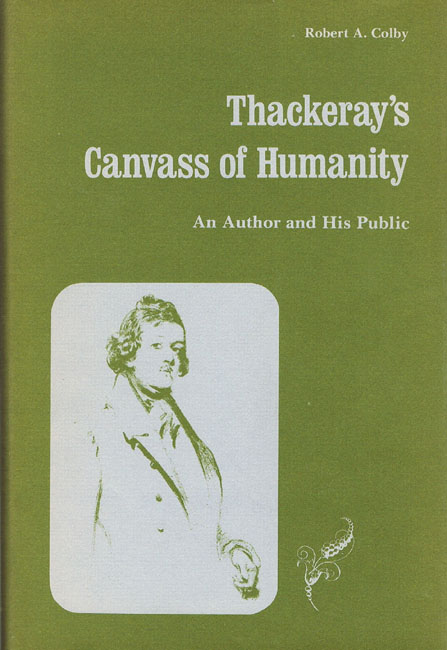Thackeray’s Canvas of HumanityAn Author and His PublicRobert A. Colby |
 1979 Literary Criticism / European / English, Irish, Scottish, Welsh 485 pp. 6x9 |
|||
|
read the full text of the book •
|
One of the many admirers of William Makepeace Thackeray recalled his first acquaintance with the author: “As I travelled through these, to me, enchanting volumes, I became aware of a writer, whose name, so I opined, should have been Proteus, since he was continually assuming fresh incarnations.” Employing the materials and methods used so successfully in his highly praised Fiction with a Purpose, Professor Colby provides, in this literary biography of a major Victorian, a systematic examination of this human panorama. He demonstrates persuasively how Thackeray’s works can be read against, and as products of, the social and literary milieu in which they were composed, and how they reflect his perceptions of the readers for whom he wrote. Thackeray served a long apprenticeship as a journalist, and was necessarily immersed in the occasional, largely ephemeral output of the presses—the transient best-selling novels, the topical nonfiction, and the popular magazines. Dr. Colby shows convincingly how Thackeray’s early work fits into this wide and unstudied context, then goes on to apply the method to each of the later works of fiction. He affirms his conviction that ”the caricaturist, artist, critic, traveler, lecturer, historian, and novlist are essentially parts of a continuum”—a unified body of work in which we see Thackeray acting, at every stage, as the general instructor and mentor of his public, as the novelist caught between his desire to educate his readers and his need to amuse them. The unique commingling in Thackeray of thinker, aesthete, and entertainer, and his easy familiarity with all levels of Victorian culture—humanistic learning, journalism high and low, the lexture platform, popular arts—dictate to some extent the scope and structure of this remarkable book; but the larger part of the study is devoted to intensive contextual analysis of individual novels, taken up chronologically within related groups according to their origins and to stages in Thackeray’s development. The whole conveys in all of its dimensions the rich, accretive imagination that Thackeray brought to his multiple career: the “natural perversity of vision” that enabled him to move so nimbly from waggery to wisdom, and to view life as through a kaleidoscope; the childlike fondness for fantasy and grotesquerie, combined with sophistication and urbanity; the “strange and rare mixture of relish,” in George Saintsbury’s words, “for things of the street and things of the study” that made him a highbrow of lowbrow sympathies; the cosmopolitan sensibility fed by the triple streams of Great Britain, the Continent, and America; and, above all, the sense of humility and mortal fallability that impelled him, with all his genius, to speak to his audiences “as a man and a brother.” Robert A. Colby is professor of library science at Queens College of the City University of New York. | |||

